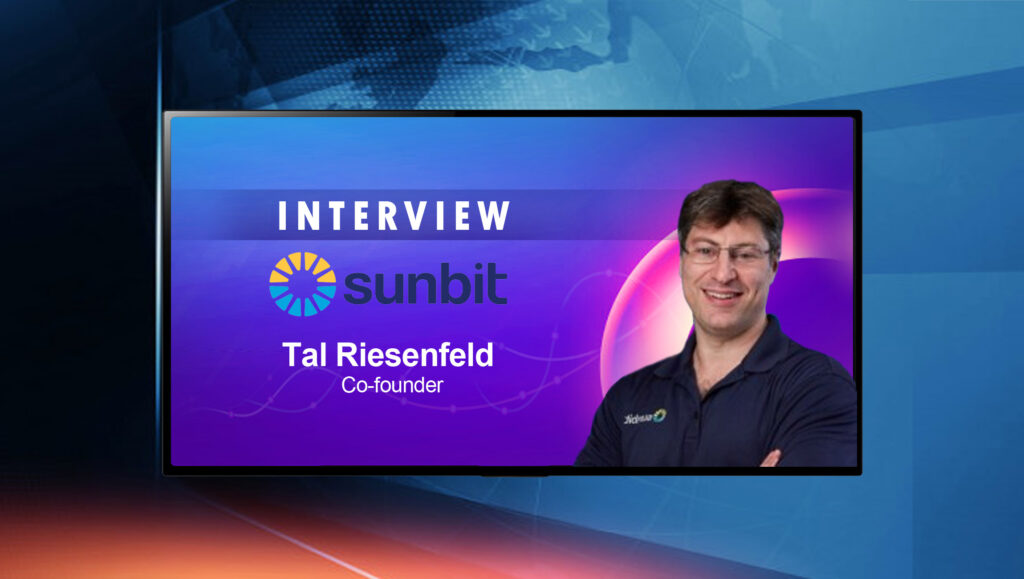Buy now pay later solutions are useful in these times of Covid-19 especially and more so when there is more of a demand for revamped contactless payment and buying models, Tal Riesenfeld, Co-founder at Sunbit dives deeper in this chat: _____ I grew up in Israel and got a first degree in computer science. In 2006 I moved to the US to get an MBA with the goal of transitioning into a product role. During my second year at business school, I partnered with a childhood friend who had a great vision for a video advertising product, and we started a company. Very quickly, it became apparent that as good as our product was, someone needed to sell it. That someone happened to be me. 8 years later I was managing a team of 25 sellers and account strategists across 5 offices in the US. I was a sales manager and that became my passion and career. In 2015 I started from scratch again, this time with Sunbit, knocking on doors in LA telling retailers that there should be a new and better way to pay for things — now known as “Buy Now Pay Later” (BNPL). After I got the first few sales, and we knew we had that elusive “product-market fit” and we started building a team…first there were 2 sellers, then 5 and over the last 5 years we have built 4 sales teams with 21 sales executives that have collectively signed up more than 7,000 merchants at a staggering pace. And we’re still only in the first inning. Read More: SalesTechStar Interview With Haggai Levi, CEO At SetSail BNPL is good for the retailer/merchant and good for the consumer, so it’s here to stay. There are many strong BNPL players that are focusing on the “want to have items” bought online. They are just scratching the surface. Sunbit decided to focus on bringing BNPL to the “things people need.” These are often real world, in-person transactions happening everyday in local communities across the world. Things like fixing your car at a dealership, buying glasses from your favorite eyewear store, or going to the dentist. Merchants spend so much money on getting the customers into their stores (be it physical or online), and customers want to buy. They also want options on how they buy — just as you probably didn’t spend $1,000 out-of-pocket when you bought your mobile phone, BNPL lets customers get what they need, and want today, and gives them the freedom to pay over time. This provides a win for everyone involved, and is becoming the preferred way to pay. In sales, like with most things, it’s all about people. In the early days when candidates asked me, “What is the culture of your sales team?” my response was, “Let me introduce you to Nick, Geoff, Rob and Jay, and you will understand the culture.” If you invest early on and start with a strong core team of sales professionals, your chances of success grow tenfold. Good people bring in more good people. Invest a lot in the early team members — you won’t regret it. Less is more. Focus on fewer verticals, fewer markets, and fewer opportunistic prospects that fall outside the core strategy. Whatever you choose to tackle, do it full force, and be relentless. If you are in a market, you are in it to win. Pinpoint the most important retailers in the category, assign the top 20 to your finest sales people, and execute like there is no tomorrow. You want to be the market leader and you will not get there by mistake. As you start to see success, you will shift from no one knowing who you are to needing to deal with a mountain of inbound leads. Always make sure you and your salespeople have a weekly and monthly execution plan. Each sales person on the team should know where she or he will be in the next four weeks. A plan prevents a seller from being distracted by impulse. As you start scaling, your team will get more and more inbound leads. Having a plan ensures that sellers keep their goals top of mind. Even though they may pivot from the plan slightly to make room for new opportunities, they’ll only take on initiatives that stay aligned with their goals. Planning ensures the team stays focused on the core plan, without getting distracted by just any lead that hits their inbox. Keep in mind that this is a marathon, and you need your team to keep running the distance. One of my army commanders used to joke that “to win the race you need to start as fast as you can — and then accelerate.” Sales is a bit like that, but the real goal is to sustain a high performing team for years. As you start seeing success and scaling the business, the biggest risk is loss of focus. If you have been successful in one vertical or region and you feel you have a strong product-market fit, make sure you double and triple down before you start running in five new directions. Stay focused. If you are opening a new market or vertical, make sure to allocate enough resources to it. If you have a budget for 10 additional sellers that doesn’t mean you should assign them to 10 new initiatives — it probably means that you would add at most 1-2, so you have enough power behind each of them. Success is dangerous if handled incorrectly. Remember everything you did to be successful early on; that’s what you need to do again. No shortcuts. Read More: SalesTechStar Interview With Olivier Pailhes, CEO And Co-Founder At Aircall Hiring is the most crucial part of your role. I wrote an article recently about hiring purple unicorns. These are the strategic, charismatic, persistent, and smart go-getters, who can land any account and build long-lasting relationships with clients. And of course, you don’t come by them easily. Do your own recruiting — don’t outsource it. Start with finding the best targets. I’m always asking people who the best salesperson at their last organization was, and then asking them for an introduction. Meet that candidate in person. I can’t stress enough how important it is to meet face-to-face with a candidate. First, it shows your persistence and commitment to the process — something a good salesperson will appreciate. And, because good salespeople aren’t usually in the market for a new job, this gives you a chance to do what you do best: sell. Give them as much information about your company and the opportunity as possible. That allows them to assess their fit, while you do the same. Listen to your gut. If there are red flags that whisper in your head during the hiring process, they could turn into a shout within a few months. It has to be a fit for both sides, or it won’t work. Great candidates usually have a lot of opportunities — so what’s the competitive advantage you have over an offer from a big company with tons of perks? The answer is you! You are the one who has taken the time to reach out and to get to know them, and to identify them as a purple unicorn. You are the one who will be invested in helping them succeed. You are the one who should close the deal. Let them know that you won’t cap their upside, and that bringing in good business is always rewarded. In sales you are only as good as your last deal. Great sales leaders are able to push and pull the team whether they are above or below a goal, and they are able to maintain high-performing sales teams over a long period of time. I think first and foremost, sales leaders need to lead by example. If you are in the room pitching the big deal with your sales people, you get a sense for the problems first-hand, while also doing real hands-on training and building a relationship with your people. No Zoom call will ever replace that. In this era when sellers have never been more isolated and distanced from one another, it is important to facilitate communication between your team. This can be at an official meeting, or informal calls from one sales person to another. There are also technology platforms like Slack and WhatsApp that can help facilitate communication. Anything you can do to reduce the feeling of being alone will help motivate the team. Read More: SalesTechStar Interview With Bart Van Eijck, Associate At ValueSelling
Sunbit is the preferred buy now, pay later technology of service providers and retailers fulfilling the needs of thousands of local communities. Sunbit eases the stress of buying everyday things by offering access to fast, fair and transparent payment options to people everywhere. Sunbit technology is offered in-store and online through nearly 7,000 locations, including 1 in 5 auto dealership service centers, optical practices, dentist offices and specialty health care services. Tal Riesenfeld is Co-Founder and leads sales at buy now, pay later technology company Sunbit. A serial entrepreneur and experienced sales executive, he has co-founded companies and built sales teams, securing large retail accounts like Macy’s, Lowe’s, Mazda, Land Rover, Hyundai, Walgreens, Wal-Mart and Ace Hardware. He has opened global offices and led sales across organizations, including at video technology company Eyeview, which was named in the top 10 fastest growing companies in North America in 2015. Tal has past experience at Google and Hewlett Packard, and is a graduate of Harvard Business School.Hi Tal, welcome to this chat! Tell us about your journey through the years…tell us about Sunbit and its growth journey over the years…
How are you seeing BNPL solutions reshape the merchant and overall payments and ecommerce landscape today? A few thoughts into the future of these solutions?
We’d love to hear about some key takeaways and highlights from your time expanding the business at Sunbit; key startup (sales) and expansion learnings?
As startups plan to scale and boost their sales and marketing (teams and technologies) what are some of the top factors you feel business leaders and founders should keep in mind here?
We’d love to hear a few key takeaways that you feel industry leaders should keep in mind as they hire / build out sales teams in today’s environment?
A few thoughts on what you feel today’s sales leaders need to do to motivate, train and uplift their teams to optimize business and sales performance?






















